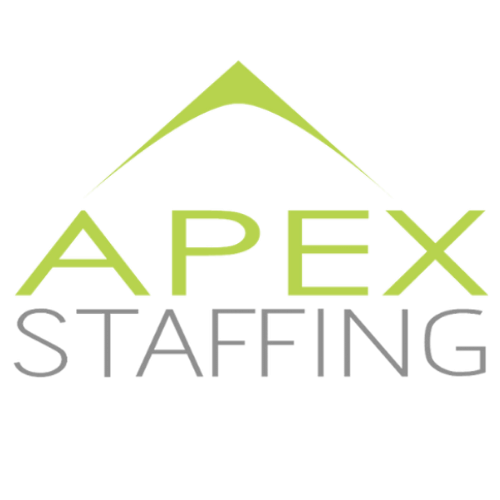Skills That Every 21st-Century Worker Needs to Develop: Part One

With technology advancing more quickly than ever, the modern job market is moving at a lightning-fast pace. Skills that you developed in college may be out-of-date by the time you’ve graduated and are ready to look for a job + Everyone seems to be looking for “five years experience,” which can be quite the conundrum for recent graduates and those who are looking to switch career paths completely.
Luckily, there are skills you can focus on developing that will help you apply for any position and stand out from the other candidates.
1. Critical Thinking
We are discussing critical thinking first because we believe it is arguably the most important one you can cultivate. It informs and supports all of the other skills we’ll be going over. Critical thinking is the ability to find solutions to problems without being told what to do. It’s a logical understanding of the ways that ideas connect and interact, and using that understanding to build new and creative solutions.
Enhancing your critical thinking skills can help you acquire knowledge, improve theories, and strengthen logical arguments. This can aid you in all sorts of projects and work situations, from answering difficult client questions to negotiating contracts and promotions to debugging code.
There are a number of ways to develop your critical thinking skills. Coursera, Lynda.com, Teachly, and EdX all periodically offer coursework on critical thinking and logic-based problem solving that gives students an opportunity to engage in project-based, self-directed work as well as applied learning. You can also start with small, individualized exercises such as:
- Asking basic questions when you’re faced with a problem:
- What do I already know?
- How do I know that?
- What am I trying to prove or demonstrate or accomplish?
- What could I be overlooking?
- Study up on cognitive biases:
- Being aware that your thought processes follow certain patterns is the first step to improving them.
- Practice reversing problems:
- If X causes Y, does Y cause X? Even if it doesn’t, imaginative thinking can help shake your mind free of the rut you’re currently trapped in.
Because critical thinking is a skill that can improve and apply to almost any situation, adding courses and certifications in it to your resume can really help you stand out. Everyone wants to hire an employee who can think for themselves, solve problems on their own, and easily evaluate and address difficult situations.
2. Collaboration
When you work for a company, you are working for – and with! – other people. No matter how solitary a job description may sound, you still have to speak to the client to gather requirements, attend project meetings to understand your goals and speak to your boss about your progress and performance. If nothing else, you will be working with other people and have coworkers with whom you will be interacting.
Collaboration is a buzzword that’s used a lot in the business world, but there’s a reason that it’s such a popular one. Collaboration means the ability to work as part of a team, achieve compromises, and work together to find the best possible solution. When teams collaborate fully, businesses thrive. Without communication and collaboration, companies – and their products – can become disjointed, inefficient, and scattered.
Willingness is the key element of collaboration – people have to be willing to compromise, be open to new ideas and different opinions, and willing to offer up their own ideas to the group. True collaboration means that you understand the concept of “the greater good.” For employers, that means that you’re willing to put aside any differences or petty personal problems in the interest of your company’s long-term success.
To develop and showcase collaboration skills on your resume, consider volunteering or joining think tanks and other community or business organizations. In your cover letter, discuss a time that you were part of a team that had to solve a problem. At work, when you notice that a process is failing or a teammate is struggling, bring in other opinions and work to solve the problem together.
3. Communication
This may seem like a given to most people. “Of course I know how to communicate! I talk and send emails and give presentations all the time!” But there is a difference between communicating and communicating effectively. Effective communication is a necessary requirement for any company that needs to maintain profitability.
Imagine that your boss sends an email saying “This project needs to move faster.” Panic ensues. Which project? How much faster? Why is this happening? It’s likely that every person on the team will interpret this email differently, causing confusion, chaos, and completely unnecessary emotional distress.
A more effective way to communicate would be to say “The marketing plan for the Simmons project needs to be completed a week early due to a change in leadership. They want to have everything locked down before the old creative director leaves and the new one begins. Start thinking about how we’ll fit this into our current schedule and we’ll discuss in a meeting tomorrow at 8 am.” It’s a longer email to be sure, but it’s not the word count that matters as much as the clarification that leaves no room for misinterpretation.
To develop effective communication skills, it’s important to remember that there are many styles of communication and many different personality types. Learning to hone your language and your delivery to encompass your ideas without alienating anyone is a powerful tool in any industry and one that is appreciated by every employer.
Practice your communication skills by having a discussion with a friend or family member and ask them to offer feedback about ways you could be more clear or concise. The more you practice, the better you’ll become. You can also take courses online for both written and verbal communication. Or you could try joining a group like Toastmasters that teaches people the basics of speech making and oral presentation. This kind of organized practice teaches you to organize your thoughts and your words in a way that reaches the widest possible audience.
For more tips on how to develop the skills that 21st-Centry hiring managers are looking for, watch for Part Two in this series! You can also contact Apex Staffing online + We specialize in pairing job seekers with local companies in the professional, medical, engineering, IT, and administrative fields. Check out our Job Openings page +
